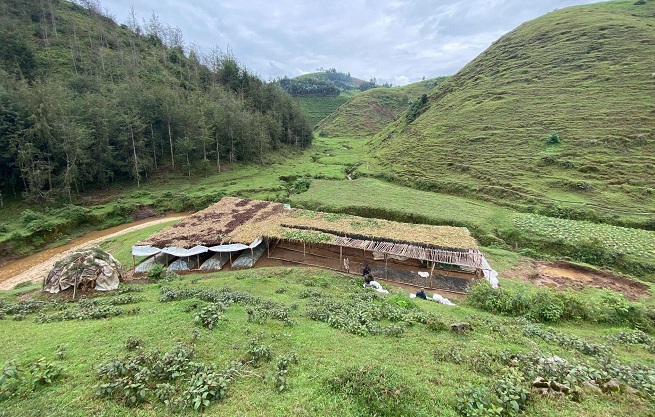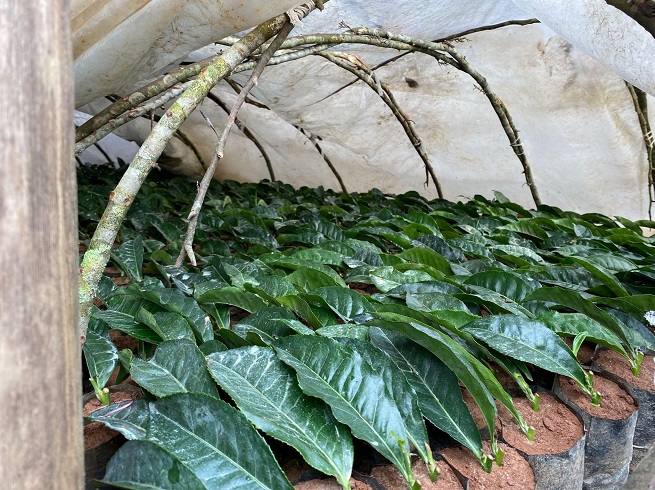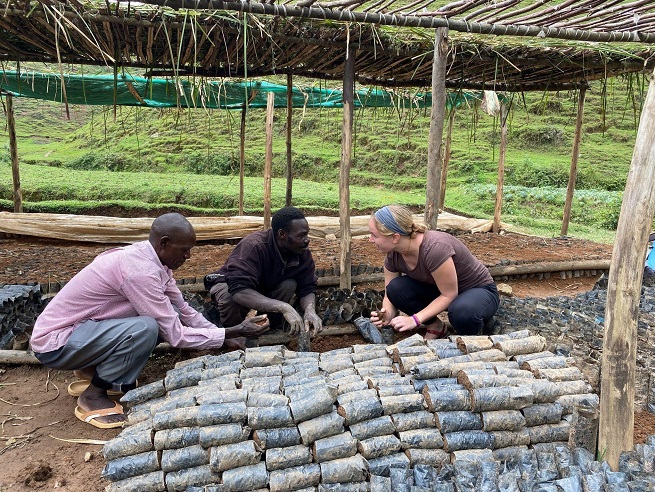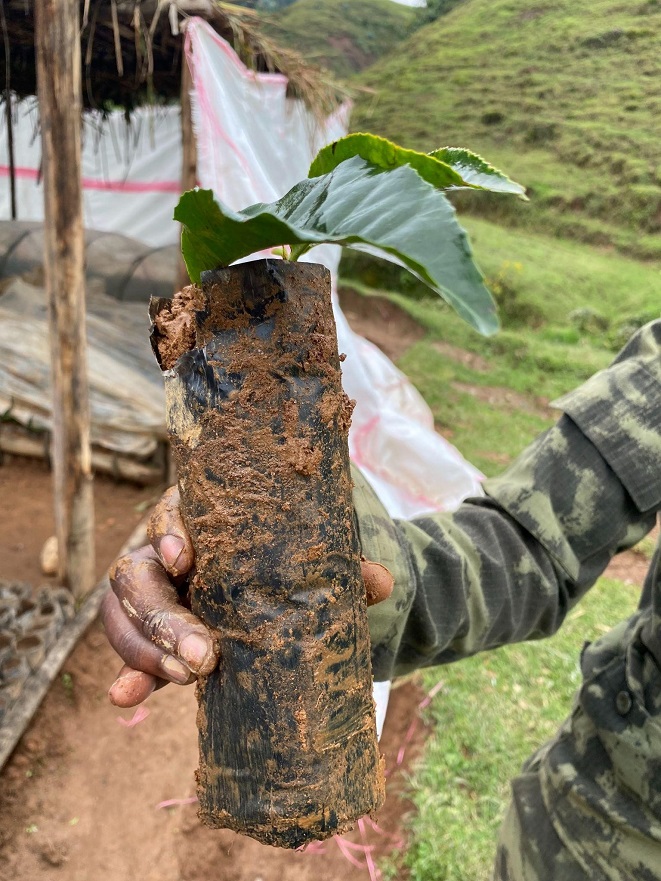A contribution to the Economic Stability in Historically Marginalized Communities Through Tea Domestication

The historically marginalized community that lives on the edge of Gishwati Forest has struggled with economic stability. Forest of Hope grouped members of this community into a dance association, but there hasn’t been enough income to support these families. In response, Forest of Hope applied for and received an International Tree Foundation (ITF) grant to promote tree domestication in Gishwati and encourage the alternative economic activity of tea domestication. One component of the ITF project involved indigenous tree agroforestry and the cultivation of fruit trees in local community land in the Gishwati area. Tea domestication was an added component of the grant to encourage sustainability and enhance community development.

View of the tea nursery tucked into the rolling hills of Kinihira and Nyarusuku
The tea nursery is in its second phase of development. After a trial run last year, the association INDASHYIKIRWA is planting its first major crop of tea. The thirty-eight individuals that form this association will spend several months planting and cultivating 25,000 tea seedlings to be sold to local farmers. If the project is successful, this could earn the association around $2,500 USD per year.

Newly planted seedlings in the ‘greenhouse’
After this year’s harvest, the association will distribute a certain percentage of the money directly to its members and reinvest the rest for next year’s crop. The ITF grant that Forest of Hope has been given to support this project has paid for the initial construction costs of the nursery, the first group of seedlings, and a small stipend to encourage the association to be involved. Forest of Hope’s program coordinator, Thierry Aimable Inzirayineza, has been overseeing the early stages of tea domestication before hopefully allowing the association to oversee the nursery itself.

Members of the cooperative teaching a visitor to plant tea seedlings
This project is important not only to provide economic development for the local people, but also to protect the forest’s resources. When this community has enough money to purchase daily necessities, attempts to collect Park resources including firewood, fruits, or bushmeat decrease. It is important for the community to have a stable income because it prevents this subsistence gathering from the forest and protects the flora and fauna of Gishwati.
One component of this ITF project involves providing some initial training for association members to teach them how to develop and care for tree seedlings in the nursery. Community members have continued working with a local agronomist to refine their farming skills and techniques to make their nursery successful. Though tea domestication is hard work, the association works diligently to care for this harvest because they see the potential benefits of the stable income. Their ability to earn an income from the tea nursery will also allow this association to invest in other tree varieties including indigenous forest trees, trees needed by the local community for agroforestry, and fruit trees. These other seedlings will be given out to the community to encourage reforestation work and community development.
The agronomist showing us one tea seedling
This tea nursery is one of the projects of Forest of Hope that encourages community development and community forest protection which aligns with the goal of community-based conservation. Thank you to the International Tree Foundation for supporting this important project.
y and enhance community development.


